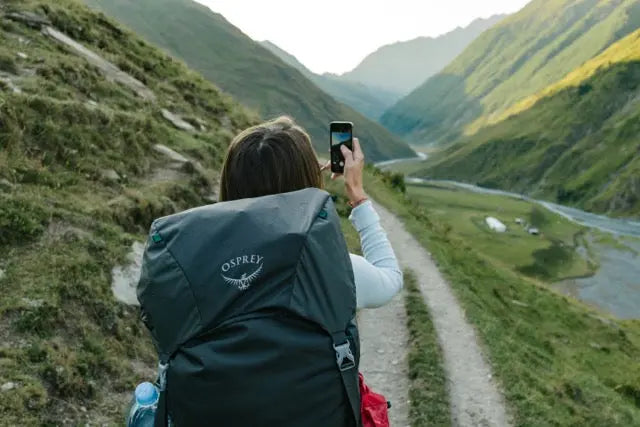The bets travel tips for conscious travellers.
Travel holds a special place in our hearts, offering us incredible experiences and opening doors to diverse cultures., but we all need to ask how to travel sustainably. While global travel has become more accessible in recent years (excluding the current Covid-19 situation), it's crucial to recognize the impact our journeys have on people, animals, and the environment. This awareness forms the essence of sustainable travel.
But what exactly is sustainable travel? It encompasses various aspects aimed at reducing negative impacts on local communities, wildlife, and ecosystems during our adventures.
I'll be candid – none of us are perfect sustainable travelers. I still take flights and use bottled water in certain areas. But here's the thing: perfection isn't the goal. It's about each of us learning and making small changes that collectively create positive impacts.
Let's delve into key ways we can foster a sustainable future in travel:
Understanding the Challenges
The major issues in travel include overtourism, excessive fuel consumption, and the disruption or mistreatment of locals and wildlife due to tourism.
Tips for Sustainable Travel
Choose Your Destinations Wisely
Overtourism has become a recognized concern, with places like Venice, Barcelona, and the Taj Mahal bearing its brunt. Opting for lesser-known destinations not only reduces this strain but also offers richer experiences and supports local economies. Here are some swap suggestions:
- Venice, Italy → Mostar, Bosnia and Herzegovina
- Barcelona, Spain → Porto, Portugal
- Taj Mahal, India → Badshahi Mosque, Pakistan
- Santorini, Greece → Bodrum, Turkey
- Bali, Indonesia → Dahab, Egypt
- Dubai, UAE → Manama, Bahrain
- Boracay, Philippines → Siquijor, Philippines
- Mount Everest, Nepal → Peak Lenin, Tajikistan
- Paris, France → Warsaw, Poland
- Rome, Italy → Thessaloniki, Greece
- Zanzibar, Tanzania → Vilankulos, Mozambique
- Phuket, Thailand → Kudat, Borneo, Malaysia
- Hanoi, Vietnam → Yangon, Myanmar
- Cancun, Mexico → Mancora, Peru
- Dubrovnik, Croatia → Kotor, Montenegro
- Korfu, Greece → Himare, Albania
- Serengeti, Kenya → South Luangwa NP, Zambia
Mindful Timing
Consider traveling during off-peak seasons to ease the pressure on tourist hotspots and support local businesses during quieter periods.
Responsible Volunteering
Be cautious when engaging in volunteer projects abroad. Thoroughly research to ensure your efforts contribute positively without inadvertently causing harm.
Sustainable Transport
Minimize air travel where possible and opt for overland journeys. Explore train, bus, or carpooling options for domestic travel between countries.
Conscious Exploration Within Cities
Choose eco-friendly modes of transport like walking, biking, or public buses when navigating cities. Support local guides and businesses for authentic experiences.
Ethical Dining and Accommodation
Favor local eateries and accommodations that prioritize sustainability, fair wages, and community engagement. Consider eco-friendly stays that align with your values.
Respect for Local Culture and Wildlife
Respect local customs and traditions during your travels. Avoid activities that exploit or harm wildlife, and choose souvenirs that support local artisans and communities.
Eco-conscious Packing
Pack reusable items like cups and straws to reduce single-use plastic. Opt for durable clothing and eco-friendly toiletries to minimize waste.
Souvenir Shopping with Purpose
Purchase locally made souvenirs to directly support communities and ensure authenticity.
By making mindful choices, we can collectively contribute to a more sustainable and enriching travel experience for everyone involved. Share your sustainable travel tips and experiences in the comments below!




Leave a comment
This site is protected by hCaptcha and the hCaptcha Privacy Policy and Terms of Service apply.